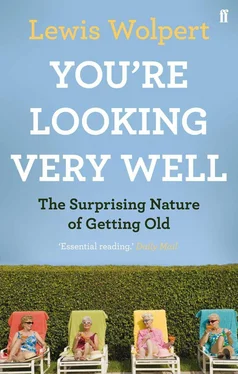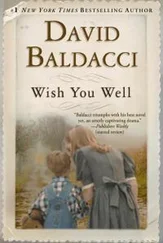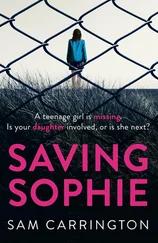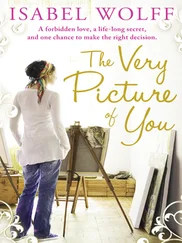Among Americans only 12 per cent said retirement would be the best years of their lives and about two thirds said their biggest concern about old age was becoming ill, and were afraid of losing their memory. About a quarter of those over 65 say they are in good or excellent health. Several surveys of the old show ageing is a positive experience for the majority: they do not think of themselves as old and feel younger than they are. Among those who would prefer it if they were younger, the mean desired age of those aged 65 was 42.
The elderly’s level of religious participation in the US is greater than that of any other age group. For the elderly, the religious community is the largest source of social support outside of the family, and involvement in religious organisations is the most common type of voluntary social activity. Religious faith among older people effectively offers a sense of meaning, control and self-esteem, and helps in coping with the stress of old age. There is also some evidence to show that the religious live longer.
A Pew Research survey in the US asked about a wide range of potential benefits of old age. Good health, good friends and financial security predict happiness. Seven in ten respondents aged 65 and older said they were enjoying more time with their family; about two thirds enjoyed more time for hobbies, having financial security and not having to work. About six in ten say they get more respect and feel less stress than when they were younger. Daily prayer and meditation both increased with age. Among those aged 75 and older, just 35 per cent said they feel old.
The attitudes of the old to being old can, of course, vary widely. The interviews with elderly men in Don’t Call Me Grumpy by Francis MacNab are revealing, and the advice in Enjoy Old Age by the psychologist B. F. Skinner and M. E. Vaughan is helpful. I find attractive this comment which they record as being given by several of the elderly: ‘Thank God I no longer have to be nice to people.’ There is also a noticeable tendency in some of the old to look back on their lives and try to make it coherent. And of course some say to themselves that life is no longer worth living: it is the same every day, what is the purpose of going on?
While the old experience declining health and the sense of being mortal, many maintain their wellbeing and are less troubled when exposed to negative emotions. Older adults are better at avoiding negative affect and maintaining positive affect, and they have better memory for positive pictures than negative ones. But for some old age is not good. I interviewed the Nobel Laureate novelist Doris Lessing, who is 91. What does she feel about being old? ‘I feel irritated. I also do not feel as well as I should and I am not outside gardening. I am irritated that my health is not as good as it should be. I started feeing like this about a year ago. There are no good things about being old and I am short of everything. I am irritable and do not really like being irritable. My son is unwell as well. I would not like to go on living for long—it gets me down. I am not writing.’ By contrast, the philosopher Mary Midgley, who is also 91 and who has just written another book, told me that when she gives a lecture she now enjoys the advantage of no longer minding what people think about her ideas.
The older pursue more emotionally meaningful goals, while the younger look for broader horizons. They are also less sensation-seeking. And they avoid physical risk, though can be fond of gambling. Many positively enjoy retirement and old age. In the arts there are many examples of creative people who have worked till they were old, albeit with some problems. Michelangelo, at 88, was designing the monumental dome of St Peter’s Basilica; Stradivarius, in his 90s, produced two of his most famous violins; Verdi composed the opera Falstaff when an octogenarian. Bach and Beethoven were still creative composers in their old age. Rembrandt and da Vinci painted self-portraits that reflected their age; Goya at 70 made his look like a man of 50. Chateaubriand, the French writer and diplomat, so hated his ageing face he refused to have his portrait painted. But there was old Rembrandt with his penetrating self-portraits; old Titian’s sensuous paintings of virgins; and Yeats’s later works were his best. A recent pleasing example of the old being given key roles in a famous play was at the Old Vic in Bristol, where Sian Phillips at 76 played Juliet to Michael Byrne’s 66-year-old Romeo. Judy Dench played Titania in a 2010 production of A Midsummer Night’s Dream aged 75, for the 79-year-old director Peter Hall, 48 years after first stepping out in the role.
* * *
There has been a significant change in the sociology of ageing since the 1950s generation aged. They have a different perception, much influenced by greater affluence. There are more lifestyle choices, and those who were spenders when young continued as they aged. At the end of the century, retired people had more wealth than those of working age, and residential mobility had increased among the retirees. The common perception among advertising agencies is that younger age groups spend more than older age groups, but recent studies show consumers aged 65 to 74 outspend their counterparts in the 35-to-44 age group. About one in six women are now pensioners and this will probably increase to one in four over the next ten years. The idea that these women are becoming doddery and inactive is wrong. This is an image that relates to the situation 30 years ago. Now, to the contrary, the evidence is that many are active and young looking.
Older adults experience fewer stressful life events than younger adults. They have, for example, less marital conflict and job stress. Old men are less critical of their bodies than women. A study or 340,000 Americans found that levels of stress began to decline in their early 20s and when they reached 50 then worry decreased, and happiness and enjoyment then increased till 85. It is almost like having, the researchers claimed, a new life that begins at 40. There is new wisdom and the old are better able to view their life circumstances positively. Those who age successfully are in good health, with high levels of mental and physical activity, and active involvement with their environment. Most older people take a holistic view of what ‘health’ means, including wellbeing and social factors, and in general take a positive view. Social contact remains a central issue for the aged, and there is a decline in interest in national issues, yet about two thirds of the aged turn out to vote at elections in the UK. More of them vote more than young people, and their vote is very important to all the political parties.
Adults are very capable of learning well into their 70s, which is a good reason to accept lifelong learning as more than just a pleasant mantra. Likewise, it seems beneficial for teachers in the higher educational setting to be aware of the differences between the older learner and the traditional college-age student. The differences are somewhat subtle, so it will take effort on the part of an instructor to understand and implement appropriate strategies. Learning in later life contributes to physical and mental health and wellbeing. It is also associated with increased self-confidence and community activity. But participation in further education for older people is very low, with only 10 per cent of the over 75s being involved. The focus is on the young, the under 25s; and just 1 per cent of the education budget is given to the old. There should be more funds to help those who are starting new careers as they age.
The University of the Third Age provides many opportunities for the elderly. It offers the chance to study over 300 different subjects in such fields as art, languages, music, history, life sciences, philosophy, computing, crafts, photography and walking, and the number increase each year. The membership of a typical University of the Third Age is about 250, but can be as small as 12 and as large as 2,000. Their approach is learning for pleasure, as there are no assessments or qualifications to be gained. Individual membership rose to over 230,000 in England in 2009.
Читать дальше












